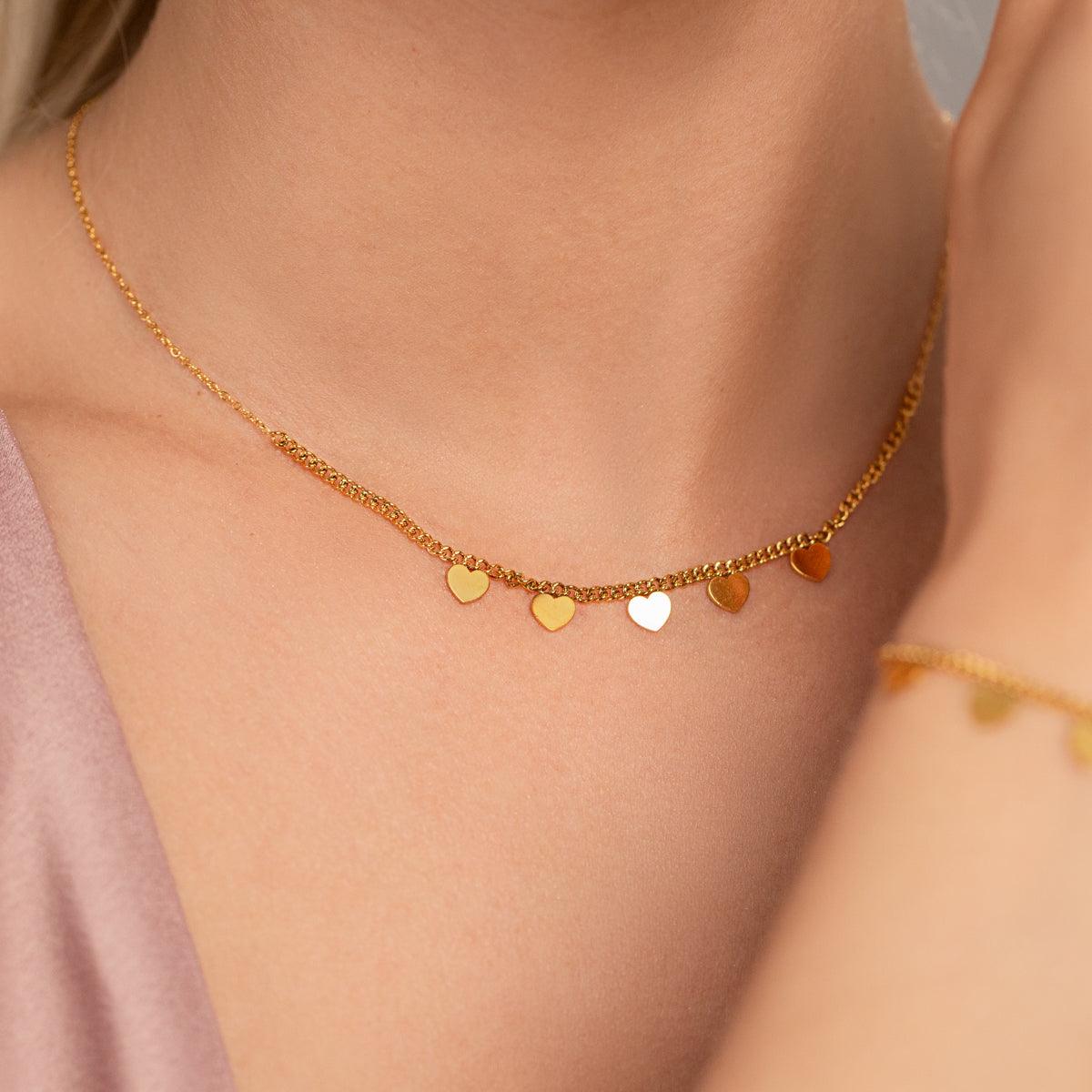Taking care of your necklaces is essential to ensure they retain their beauty and value. A little attention and some simple maintenance steps can go a long way in keeping your favourite pieces in top condition.
In this article, we'll explore how to care for different types of necklaces, clean them properly, store them safely, and even some travel tips. Let's dive in!
Types of Necklaces
Different materials require different care methods. We'll cover four common types of necklaces in this article:
- Gold and Silver Necklaces
- Gemstone Necklaces
- Pearl Necklaces
- Costume Jewellery
Proper Storage
Storage Solutions
The first step in taking care of your necklaces is ensuring they have a proper storage place. Invest in a jewellery box or organiser with separate compartments to keep your necklaces separate and secure. This will help prevent scratches, tangles, and damage to delicate materials.
Preventing Tangles
To avoid tangled necklaces, try hanging them on a necklace stand or using a necklace pouch with separate compartments. If your necklace is especially delicate, you can thread it through a drinking straw before storing it to keep it tangle-free.
Cleaning Necklaces
Gold and Silver Necklaces
Regular cleaning is essential for gold and silver necklaces. Use a soft-bristled toothbrush, warm water, and a mild dish soap to gently scrub your necklace. Rinse thoroughly and pat dry with a soft cloth. Avoid using abrasive cleaners or brushes, as they can damage the metal.
Gemstone Necklaces
To clean gemstone necklaces, mix a mild dish soap with warm water and gently scrub the necklace with a soft-bristled toothbrush. Rinse well and pat dry with a soft cloth. Be sure to research the specific cleaning methods for your gemstones, as some are more delicate than others.
Pearl Necklaces
Pearls require special care, as they're more delicate than other materials. Wipe them down with a soft, damp cloth after each wear to remove oils and dirt. Occasionally, you can wash them gently with a mild soap and water solution. Lay the necklace flat to dry to prevent stretching the string.
Costume Jewellery
For costume jewellery, use a damp cloth or a soft brush to remove dirt and grime. Avoid using water, as it can damage the finish or loosen adhesives holding stones in place.
Maintaining Clasps and Chains
Inspect your necklaces regularly for signs of wear and tear, especially at the clasps and on the chains. If you notice any damage, take your necklace to a professional jeweller for repairs.
Preventing Damage and Tarnish
To prevent tarnish, store your necklaces in an anti-tarnish pouch or add a piece of chalk to your jewellery box. This will help absorb moisture and keep your jewellery looking new. Keep your necklaces away from harsh chemicals, including perfumes, hairspray, and chlorine. These substances can damage the metal and cause tarnish.
Travel Tips
When traveling with necklaces, use a travel jewellery organiser to keep them separate and secure. For added protection, place each necklace in a small ziplock bag before placing it in the organiser. This will help prevent tangles and scratches.
Conclusion
Caring for your necklaces is an important part of maintaining their beauty and value. By following these simple tips for cleaning, storage, and maintenance, you'll ensure your favourite pieces remain in excellent condition for years to come. Remember to treat your necklaces with care and give them the attention they deserve, and they'll continue to be cherished accessories in your collection.
FAQs
- How often should I clean my necklaces?
It depends on the material and how often you wear them. Gold and silver necklaces should be cleaned regularly, while pearls and gemstones may require less frequent cleaning. As a general rule, clean your necklaces at least once every couple of months.
- Can I wear my necklaces while swimming or showering?
It's best to avoid wearing your necklaces in water, as chlorine and other chemicals can damage the materials. Remove your necklaces before swimming or showering to prolong their life.
- How can I prevent my silver necklaces from tarnishing?
Store your silver necklaces in an anti-tarnish pouch, and add a piece of chalk or a silica gel packet to your jewellery box to absorb moisture. Keep your necklaces away from harsh chemicals and clean them regularly to prevent tarnish.
- Can I use ultrasonic cleaners for my necklaces?
Ultrasonic cleaners can be used for some necklaces, but not all materials are safe for this method. Gold, silver, and some gemstones can be cleaned using an ultrasonic cleaner, but pearls, opals, and other delicate materials should be cleaned using gentler methods.
- Can I repair a broken clasp or chain myself?
While it might be tempting to fix a broken clasp or chain yourself, it's best to take your necklace to a professional jeweller for repairs. They have the tools and expertise necessary to ensure your necklace is properly repaired and safe to wear.

